This article was co-authored by Kelli Miller, LCSW, MSW. Kelli Miller is a Psychotherapist based in Los Angeles, California. Kelli specializes in individual and couples therapy focusing on relationships, depression, anxiety, sexuality, communication, parenting, and more. Kelli also facilitates groups for those struggling with alcohol and drug addiction as well as anger management groups. She is the author of “Professor Kelli’s Guide to Finding a Husband” and the award-winning and best-selling book “Thriving with ADHD”. Kelli co-hosted an advice show on LA Talk Radio and is a relationship expert for The Examiner. She received her MSW (Masters of Social Work) from the University of Pennsylvania and a BA in Sociology/Health from the University of Florida.
There are 7 references cited in this article, which can be found at the bottom of the page.
wikiHow marks an article as reader-approved once it receives enough positive feedback. In this case, 81% of readers who voted found the article helpful, earning it our reader-approved status.
This article has been viewed 226,720 times.
If your friend or loved one is feeling down, you’re probably wondering what you can say or do to cheer them up. Don’t worry—there are lots of thoughtful ways you can make someone feel better, whether they’re nearby or far away. Kind words that show them you care and fun activities to distract them from their troubles can all make a big difference and help them start to feel better again.
Steps
Reaching Out
-
1Give your friend some space. It's important to let someone process pain or grief on their own clock. Sometimes, people want a shoulder to cry on and an ear to listen. Other times, people might have to do a lot of processing and thinking on their own, depending on what's upsetting them. Don't rush it, if your friend wants some time alone.
- Reach out with something gentle after some time. You don't have to lead with, "I'm so sorry I just heard what happened, I'm headed over right now." Just say, "So sorry to hear. Thinking of you."
- Don’t be a burden on your friend. Just let them know that you’re open and ready to talk whenever they need anything.
-
2Start with a little token. If your friend is hard to get a hold of or isn't being communicative, just do something little to start the process and get the door open. It doesn't have to be a big gesture, but a little token can help you start to make someone feel better.
- Before you do try to talk to a friend or find out more about what's wrong, a card, a bouquet of flowers, or some other small token can do a lot to speak for you and reach out to someone who's really grieving. Likewise, a six-pack of beer or a mixtape can be a good reach-out gift.
- Just getting someone a soda, a tissue, or a place to sit comfortably is a good way to start. Help your friend put her hair back.
Advertisement -
3Get in touch. When someone is upset, they often don't want to be the one to ask for help. Especially if the grief is severe. If a good friend has just gone through a rough patch, like a break-up, or even a death in the family, it might be a challenge just to get in touch. Be persistent and come up with creative ways to get them talking.
- Try text messages, if your friend isn't answering the phone. These are easier to respond to in a quick way, without having to put on a good face.
- Even if your friend hasn't been through something super-serious, and is just upset because of a scraped knee, or because a favorite sports team lost, it's still tempting to isolate and ignore other people. Reach out to those people too.
-
4Just be there.[1] Sometimes, you don't need to do anything but be there for a friend. Just sitting with someone and being present for their grief is helping. Being alone and suffering in silence can be the hardest part sometimes. Let the person know that you're available to talk if they want to, but that you're also just available.
- If you're not sure what to do, ask them what they need. Some people like to talk things out while others prefer to distract themselves.[2]
- A little physical affection can speak more than a long comforting talk. Just pat someone on the back, or give a little hug. Hold someone's hand who's struggling.
Listening Well
-
1Encourage them to talk. Ask a few gentle questions to get your friend talking and opening up about what's wrong. If you have some idea, you can be specific, but if you don't, just say something like, "Want to talk?" or "What's going on?"
- Don't push. Sometimes, just sitting there and being quiet is enough for letting someone talk if they don't want to. If your friend doesn't want to talk about it, don't make them.
- Follow up in a few days if your friend doesn't want to talk. Make plans to get lunch and say, "How you been?" They might be more willing to talk at that point.
-
2Just listen. If your friend starts talking, be absolutely quiet and focus on them. Don't say anything. Don't interrupt to try to sympathize, or start telling your own story to try to relate to their miseries. Just sit quietly, look at them, and allow them to talk. This is what your friend needs the most during a time of grief.
- Make eye contact. Look at your friend sympathetically. Put your phone away, turn the TV off, and ignore everything else in the room. Lock in and listen.
- Nod along to show that you're listening, and use non-verbal cues to be a good listener. Sigh during the sad parts, smile during the funny parts. Just listen.
-
3Summarize and validate what they're saying. If your friend slows down, one way to keep them talking is to summarize what they've said and try to put it in your own words. Hearing it back can be a good part of the healing process for some people. If your friend is going through a break-up and talking about everything the ex did wrong, say, "Sounds like your ex wasn't really committed in the first place." Fill in the blanks for them to help the grieving process move forward.
- You can also use this if you're unsure exactly what they mean. "Let me see if I'm getting this straight: you're angry with your sister because she borrowed your astronomy books without asking?"
- Avoid playing down their problem if it seems small to you. It may be more upsetting to them than you think.
- Don’t try pretending you know what they’re going through if you haven’t been in a similar position.
-
4Don't try to solve the problem. Lots of people, especially guys, make the mistake of thinking that talking about a problem means that you're trying to solve the problem. Unless your friend specifically asks something like, "What do you think I should do?" don't try to come up with a solution. Grieving isn't a problem that has an easy solution, so don't go looking for a tidy one. Just listen, and just be there.[3]
- This is especially true if your friend made some mistake. It's probably not necessary to point out that your friend might not be so upset about failing a test if they had studied instead of playing video games.
- If you want to offer advice, pause. Ask "Are you looking for advice, or do you just want to vent?" Honor their response.
-
5Talk about other things. After a while, it's good to move the conversation forward gently, especially if you see that your friend has run out of steam or has just started repeating things. Try to get your friend to look at the bright side, or just start talking about other plans to start looking forward.
- Talk about what you're doing later, or what you're doing next. Take a little step into talking about a new issue. If you're sitting outside a school building, talking about a break-up, say, "So, are you hungry? What do you want to get for lunch?"
- Eventually, your friend may run out of things to say. Don't let them keep circling back to the same topic, over and over again, if it doesn't seem to be productive. Encourage them to talk about other things, and focus energy elsewhere.
Keeping Busy
-
1Distract the person with activities.[4] Go do something so your friend doesn't just keep dwelling on the upsetting thing. It really doesn't matter much what it is, just as long as your friend can stay busy and engaged in some activity.
- Just get up and go for a walk if you're sitting around. Walk around the mall and window shop, or just walk around the neighborhood to get a change of scenery.
- Blow off some steam, but don't blow off too much steam. Grief isn't an excuse for abusing drugs, tobacco, or alcohol. Be the voice of reason if you're trying to help your friend feel better.
-
2Do something physical. Exercise helps to release endorphins in the brain that can help calm and restore the mind.[5] If you can get your friend to do something physical, it can be a great way of getting some good feelings back the healthy way.
- Try doing some meditative exercise, like some light stretches, or even yoga.
- For a fun distraction, play backyard sports, bike, or go for a walk.
- If your friend is feeling angry or frustrated, do something really high impact and physical to work it out. Hit the heavy back at the gym, or do some dead-lifts.
-
3Do something light and entertaining. If your friend keeps dwelling on some darkness, go in the opposite direction. Decide you're going to head to the mall and go window shopping, or that you're going to go swimming and eat popsicles. Get out all your favorite Disney movies and make popcorn and have a movie marathon and talk about your crushes. Do something light and fun, to keep from dwelling on the sad stuff.[6]
- Watch a funny movie or a stand-up comedian to help shift their attention away from their own negative thoughts.[7]
-
4Get something to eat. Treat your friend to something special when they're feeling down. Go out for ice cream, or grab a bite at your favorite restaurant. Sometimes, grief can cause people to avoid meals and lose their sense of appetite, which drops the blood sugar and makes everything worse. Get a little snack and your friend might start feeling better.
- Sometimes, it's good to drop off a meal to a friend who's going through a tough time. Make up a pot of soup and drop it off. One less thing for them to worry about.[8]
-
5Encourage them to cancel non-critical plans. If your friend has really gone through a terrible experience, it might be a bad idea to try to go do that presentation at work or try to sit through a long and arduous class period. Take the day off and do something to get your head straight instead of going about the regular routine, if necessary.
- In some cases, it might be better for your friend to just put their head down and get back to work. Regular stuff can be a good distraction. Let them make the final decision, but let them know they have a choice, at least.
Expert Q&A
Did you know you can get expert answers for this article?
Unlock expert answers by supporting wikiHow
-
QuestionHow can I cheer up my friend?
 Kelli Miller, LCSW, MSWKelli Miller is a Psychotherapist based in Los Angeles, California. Kelli specializes in individual and couples therapy focusing on relationships, depression, anxiety, sexuality, communication, parenting, and more. Kelli also facilitates groups for those struggling with alcohol and drug addiction as well as anger management groups. She is the author of “Professor Kelli’s Guide to Finding a Husband” and the award-winning and best-selling book “Thriving with ADHD”. Kelli co-hosted an advice show on LA Talk Radio and is a relationship expert for The Examiner. She received her MSW (Masters of Social Work) from the University of Pennsylvania and a BA in Sociology/Health from the University of Florida.
Kelli Miller, LCSW, MSWKelli Miller is a Psychotherapist based in Los Angeles, California. Kelli specializes in individual and couples therapy focusing on relationships, depression, anxiety, sexuality, communication, parenting, and more. Kelli also facilitates groups for those struggling with alcohol and drug addiction as well as anger management groups. She is the author of “Professor Kelli’s Guide to Finding a Husband” and the award-winning and best-selling book “Thriving with ADHD”. Kelli co-hosted an advice show on LA Talk Radio and is a relationship expert for The Examiner. She received her MSW (Masters of Social Work) from the University of Pennsylvania and a BA in Sociology/Health from the University of Florida.
Communication Coach
-
QuestionHow do you support a friend going through a difficult time?
 Kelli Miller, LCSW, MSWKelli Miller is a Psychotherapist based in Los Angeles, California. Kelli specializes in individual and couples therapy focusing on relationships, depression, anxiety, sexuality, communication, parenting, and more. Kelli also facilitates groups for those struggling with alcohol and drug addiction as well as anger management groups. She is the author of “Professor Kelli’s Guide to Finding a Husband” and the award-winning and best-selling book “Thriving with ADHD”. Kelli co-hosted an advice show on LA Talk Radio and is a relationship expert for The Examiner. She received her MSW (Masters of Social Work) from the University of Pennsylvania and a BA in Sociology/Health from the University of Florida.
Kelli Miller, LCSW, MSWKelli Miller is a Psychotherapist based in Los Angeles, California. Kelli specializes in individual and couples therapy focusing on relationships, depression, anxiety, sexuality, communication, parenting, and more. Kelli also facilitates groups for those struggling with alcohol and drug addiction as well as anger management groups. She is the author of “Professor Kelli’s Guide to Finding a Husband” and the award-winning and best-selling book “Thriving with ADHD”. Kelli co-hosted an advice show on LA Talk Radio and is a relationship expert for The Examiner. She received her MSW (Masters of Social Work) from the University of Pennsylvania and a BA in Sociology/Health from the University of Florida.
Communication Coach
References
- ↑ Kelli Miller, LCSW, MSW. Psychotherapist. Expert Interview. 21 July 2020.
- ↑ Kelli Miller, LCSW, MSW. Psychotherapist. Expert Interview. 21 July 2020.
- ↑ http://hellogiggles.com/cheer-someone-up/
- ↑ Kelli Miller, LCSW, MSW. Psychotherapist. Expert Interview. 21 July 2020.
- ↑ http://www.apa.org/monitor/2011/12/exercise.aspx
- ↑ http://youqueen.com/life/personal-development/5-great-things-to-do-to-make-someone-feel-better/
- ↑ https://hms.harvard.edu/sites/default/files/HMS_OTB_Spring10_Vol16_No2.pdf
- ↑ http://thinksimplenow.com/happiness/make-others-feel-special/?utm_source=dlvr.it&utm_medium=twitter
- ↑ https://psychcentral.com/lib/suicide-helpline-suicide-resources/
About This Article
If you’re trying to make someone feel better, especially if the person isn’t communicating, start with a small token of affection, like a card, flowers, or even a mixtape. Be careful not to rush things if the person just wants to be alone for a little while. In time, you can reach out with a call or text message that says, “I was thinking of you.” When they feel like opening up, be there to listen, and use nonverbal cues, like head nods, to show empathy and compassion. For more tips from our Medical reviewer, including how to use activities as a distraction from sadness, keep reading.


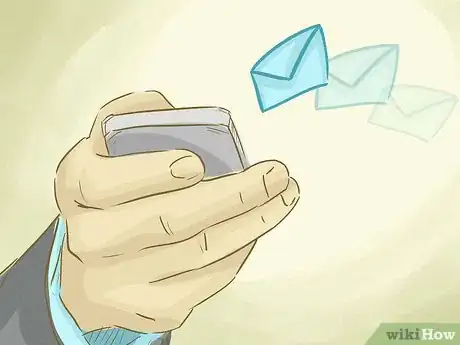



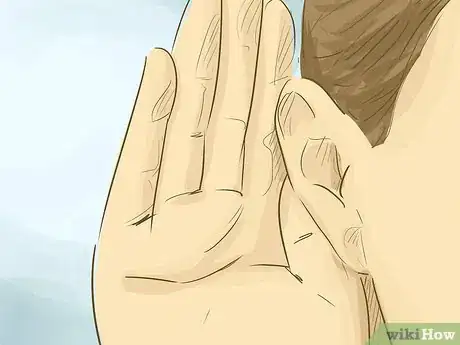

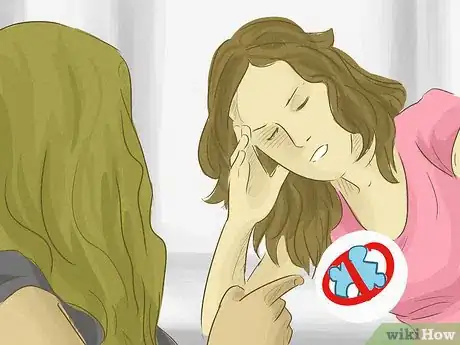
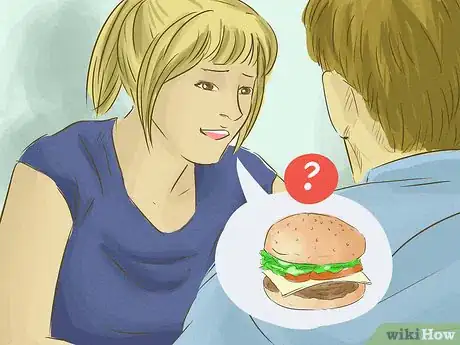




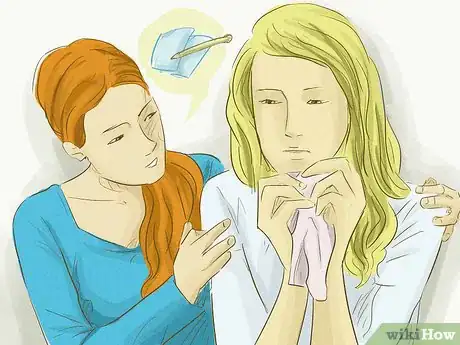





























































Medical Disclaimer
The content of this article is not intended to be a substitute for professional medical advice, examination, diagnosis, or treatment. You should always contact your doctor or other qualified healthcare professional before starting, changing, or stopping any kind of health treatment.
Read More...